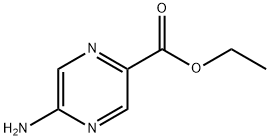I’m interested in understanding whether fasting can lower triglyceride levels. Here are my questions: 1. How does fasting affect triglyceride metabolism in the body? 2. What physiological mechanisms cause triglycerides to decrease during fasting? 3. Are there any risks or limitations to fasting for lowering triglycerides? 4. How effective is fasting compared to other lifestyle changes or medications? 5. What are the best practices for safely using fasting to improve triglyceride levels? I would appreciate a clear and detailed explanation.
Will Fasting Lower Triglycerides and How Effective Is It?
Related Encyclopedia

- 9004-10-8
- C256H381N65O77S6
- 5793.54364
- All (2)
- China (2)
- (2)
- 11070-73-8
- C254H377N65O75S6
- 5733.49
- All (2)
- China (2)
- (2)
- 11061-68-0
- C257H383N65O77S6
- 0
- All (2)
- China (2)
- (2)

- 160337-95-1
- C267H404N72O78S6
- 6062.89026
- All (1)
- China (1)
- (1)

- 844439-96-9
- C274H411N65O81S6
- 6103.97204
- All (1)
- China (1)
- (1)
- 116094-23-6
- C256H381N65O79S6
- 0
- All (1)
- China (1)
- (1)
- 1234389-42-4
- C35H58NO4P
- 587.81300
- All (0)
- China (0)
- (0)
- 1245550-79-1
- C36H55N3O6
- 625.83800
- All (0)
- China (0)
- (0)

- 133107-64-9
- C257H383N65O77S6
- 5807.57022
- All (0)
- China (0)
- (0)
- 61912-98-9
- 0
- All (0)
- China (0)
- (0)
Related Products More >
-
- 98-92-0
- Request For Quotation
-
- 98-92-0
- Request For Quotation
-
- 98-92-0
- Request For Quotation
-
- 98-92-0
- Request For Quotation
-
- 98-92-0
- Request For Quotation
-
- 98-92-0
- Request For Quotation
-
- 98-92-0
- Request For Quotation
-
- 98-92-0
- Request For Quotation




Physiologically, during fasting, lower insulin levels decrease the liver’s synthesis and secretion of triglyceride-rich very-low-density lipoproteins (VLDL), reducing blood triglycerides. The mobilization of stored triglycerides and increased fat oxidation also contribute to triglyceride lowering. Clinically, lowering triglycerides through fasting or caloric restriction can reduce cardiovascular risk, as high triglycerides are linked to atherosclerosis and pancreatitis. However, fasting should be approached carefully, especially in individuals with diabetes or metabolic disorders, to avoid hypoglycemia or other complications.
The best approach combines fasting with a balanced diet rich in omega-3 fatty acids, fiber, and low in refined sugars and saturated fats. Regular physical activity further supports healthy lipid metabolism. If triglyceride levels remain elevated despite lifestyle changes, medications such as fibrates, omega-3 supplements (e.g., icosapent ethyl), or statins may be needed.
Hormones like glucagon and adrenaline activate enzymes such as hormone-sensitive lipase, which breaks down triglycerides in adipose tissue into free fatty acids and glycerol. These components then enter the bloodstream to be used as fuel. In the liver, fatty acids can be converted into ketone bodies, an alternative energy source during prolonged fasting.
Interestingly, while short-term fasting (12-24 hours) may temporarily increase circulating triglycerides as they're mobilized from fat stores, sustained fasting typically leads to lower overall triglyceride levels as the body continues to utilize them. In clinical settings, we measure this through blood tests that quantify triglyceride hydrolysis products.
Lifestyle habits play a role too. Sedentary behavior slows calorie burn, leaving more energy to be stored as triglycerides. On the flip side, regular exercise helps the body use these fats for fuel, keeping levels in check. Certain groups are more vulnerable: people with obesity, type 2 diabetes, or hypothyroidism often struggle with triglyceride regulation. Genetics can also make some individuals prone to higher levels, even with healthy habits.
A common myth is that only high-fat diets cause triglycerides to rise. In reality, excess carbs—especially sugary or processed ones—are just as likely to drive up levels. Another misconception is assuming thin people are safe: those with poor muscle mass or insulin resistance can still have elevated triglycerides.
At home, small changes matter. Swap sugary drinks for herbal tea or infused water. Choose whole grains (oats, quinoa) over refined carbs to steady energy use. Add omega-3-rich foods like walnuts or sardines to meals—they help lower triglycerides. Aim for daily activity, like a post-dinner walk or a quick home workout. Limiting alcohol, especially on empty stomachs, also supports healthier levels.